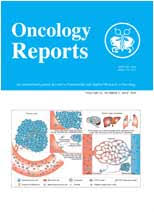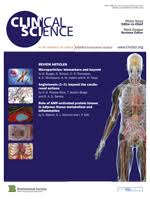Research Library
You can search for publications by selecting a category or keyword. All publications containing the selected category or keyword will be displayed below.
Categories
Keywords
Categories
Keywords
- Show all
- ADHD
- Anxiety/Panic
- Burnout
- Cancer
- Cardiovascular disease
- Chronic pain
- Cognitive function
- Cortisol/DHEA
- Costs
- Dementia
- Depressie
- Diabetes
- Global Coherence
- Hypertension
- Intuition & Consiousness
- Kids/Youth
- Leadership
- Meditation/Mindfulness
- Metabolic Syndrome
- Obesity/Eating disorder
- Pregnancy
- PTSD
- Resilience
- Schizophrenia
- Science HRV & Coherence
- Sleep quality & fatigue
- Social Coherence
- Stress
Norms of HRV in Cancer

Recent research has begun to show the role of the activity of the vagus nerve in cancer prognosis. However, it remains unknown whether cancer severity can impair vagal nerve activity. This study combined data (N = 657) of five different cancers (colorectal, pancreas, prostate, lung and ovarian) concerning patients’ Heart Rate Variability (HRV), a vagal nerve activity index. These data were compared to HRV levels of a healthy sample in another study. In addition, we examined the moderating effects of age, gender and cancer stage on HRV. The mean
read more...The relationship between vagal nerve activity and clinical outcomes in prostate and non-small cell lung cancer patients

Abstract. Recent studies suggest that vagal nerve activity, indexed by heart rate variability (HRV), could have a prognostic role in cancer. However, most studies did not control adequately for confounders and included cardiac patients. Furthermore, the validity of this prognostic role needs to be tested in different types of cancer. The present study tested the prognostic role of HRV in prostate cancer (PC) and non-small cell lung cancer (NSCLC) patients, using a historical prospective design. HRV was derived from brief 10 sec ECGs obtained at
read more...You may need the vagus nerve to understand pathophysiology and to treat diseases

Can different pathophysiological mechanisms and risk factors leading to various diseases be linked with altered transmission of signals by one common pathway? The present article provides evidence for the hypothesis that adequate vagal nerve activity reduces the risk ofmajor diseases, via common basic mechanisms and interim risk factors. These diseases include cardiovascular disease, cancer, Alzheimer’s disease and the metabolic syndrome. Three basic mechanisms contribute to such illnesses: local oxidative stress and DNA damage, inflammatory
read more...